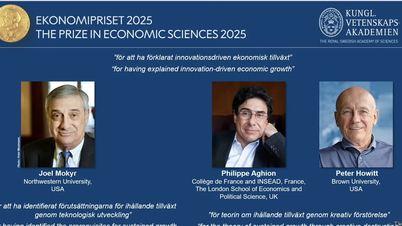According to this doctor, many schools need "good achievements" in terms of the percentage of excellent and good students graduating to satisfy parents and students.
To have "good results", the test questions must be easy for students to get high scores. With the same content, if the lecturer chooses easy parts and makes easy questions, then any student can get "good" scores.
So, the problem behind good degrees is whether the lecturers are truly invested, dedicated and responsible when creating exam questions or not? This is related to the quality of the lecturers. To create good exam questions, first of all, the lecturers must be good.
“When students get high scores, the school is happy, the parents are happy, the students are happy, the lecturers save time and don’t have to worry about complaints. The whole village is happy!”, she said.
This person said that she herself was very proud of the careful investment in creating her exam questions. Her exam questions were highly differentiated, with good students getting high scores and poor students getting low scores.
But she was also criticized for her highly differentiated test questions, which caused many students to score low. She then had to make adjustments to make the questions easier, helping students achieve higher scores.
According to her, “inflation of good and excellent degrees” leaves many consequences when the output is “good but… not good”. The biggest consequence is that learners lose motivation to try, and without effort they can easily get a “nice” degree.

Inflation of excellent certificates can demotivate learning and classify learners' abilities (Illustration: Hoai Nam).
Not long ago, the leaders of Viettel Academy gave out information that made many people think: When they accepted 2,000 excellent students from universities to train under Viettel's program, they were only able to recruit 100 students, and most of them still had to be retrained.
This leader also raised the issue of current inadequacies and imbalances in the evaluation and classification of students upon graduation, when the percentage of good, excellent, and excellent students accounts for 99%.
He said that in the past, students with average qualifications who were trained on demand still did well in their jobs. But now, many students graduate with excellent grades but businesses still have to train them from scratch.
From the perspective of both an employer and a university lecturer, MSc. Dong Quin, CEO of Revoland Real Estate Technology Company Limited, lecturer atFPT University, shared that this can be seen as a positive signal, reflecting the training efforts of schools as well as the learning efforts of students.
However, when “good” becomes too common, degrees will be at risk of inflation. At that time, transcripts or excellent degrees are no longer enough for businesses to classify and accurately evaluate candidates’ abilities.
According to MSc. Dong Quin, today's degrees are only for reference, the "initial door", but are absolutely not the deciding factor in a candidate's ability.
A good degree is an advantage that reflects the diligence and effort of the learning process. More importantly, the candidate needs to demonstrate practical working ability, problem-solving thinking, quick learning ability, along with soft skills and progressive attitude.

Students in Ho Chi Minh City at a job fair (Photo: Hoai Nam).
In reality, according to Master Dong Quin, the labor market picture is quite opposite. Businesses are always short of human resources, but graduates still have difficulty finding jobs.
Behind the leniency of many universities, many lecturers are students holding "brilliant" degrees but cannot meet practical requirements.
Source: https://dantri.com.vn/giao-duc/tien-si-ly-giai-nguyen-nhan-lam-phat-sinh-vien-tot-nghiep-bang-gioi-20251017063011368.htm







![[Photo] Closing ceremony of the 18th Congress of Hanoi Party Committee](https://vphoto.vietnam.vn/thumb/1200x675/vietnam/resource/IMAGE/2025/10/17/1760704850107_ndo_br_1-jpg.webp)
![[Video] From the 2026-2027 school year, a set of shared textbooks will be deployed](https://vphoto.vietnam.vn/thumb/402x226/vietnam/resource/IMAGE/2025/10/18/1760745668900_720-jpg.webp)




















![[Photo] Nhan Dan Newspaper launches “Fatherland in the Heart: The Concert Film”](https://vphoto.vietnam.vn/thumb/1200x675/vietnam/resource/IMAGE/2025/10/16/1760622132545_thiet-ke-chua-co-ten-36-png.webp)











































































Comment (0)